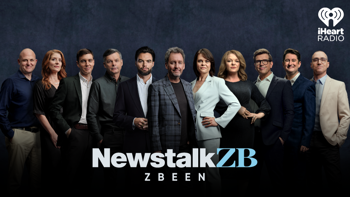The CEO of one of the country’s most prominent international aid agencies believes “rampant inequality” in our supply chains makes it near-impossible to make totally ethical decisions about the things we buy.
Ian McInnes, who heads up Christian non-profit Tearfund, says Kiwis “haven’t got a clue” how to avoid buying consumer goods that have involved the exploitation of labour or other unethical practices.
“The short answer is no, just because of the rampant inequality in the system,” he told Newstalk ZB’s Real Life with John Cowan on Sunday night.
“I’m no extreme socialist in this, but we haven’t got a clue – we’re not able to, really.”
While he concedes it’s difficult to know how to make ethical consumer decisions, Tearfund is doing work to educate Kiwis on the practices of an industry that has historically been one of the most unethical – the fashion industry.
Tearfund’s Ethical Fashion Report, released annually, has graded some of the biggest clothing retailers operating in New Zealand from A to F, based on how they source materials, how much their workers are paid and how they respond to labour exploitation, among other criteria.
“We have done more work than most with our Ethical Fashion Report to try and get to the bottom of how our fabrics and clothes are put together and what people are paid and what sort of conditions exist,” McInnes said.
“Until we are much more serious about that, we haven’t got a clue if our car tyres or our clothes or our shoes [are ethically made]. There’s a fair-trade label on some things, but with a lot of stuff there is no way to get that level of transparency.
“It’s a global consumption problem, and it’s a global inequality problem.”
Having been involved in international aid and development with Tearfund for over a decade, McInnes has seen poverty and disasters up-close in the likes of Haiti and Ukraine.
But his start in the sector came nearly 20 years ago, quite by accident, he told Real Life. He and his wife Himali had married in New Zealand early in 2004, but they travelled to her birthplace Sri Lanka for a second wedding later that year, as all her relatives lived there.
Just three days after the wedding, the Boxing Day tsunami struck.
“That was a quarter-million lives lost – 30,000 in Sri Lanka alone. Just devastation wreaked right around the island. I witnessed the tsunami.
“I had begun to train to get into international aid and development work, and there was really no time to be wasted. So I convinced the director of the Sri Lankan Red Cross, who was run off his feet, to let us use the resources they had and let us get mobile and get cracking.
“So my wife and I and her sister-in-law ran the first mobile medical clinic for the Red Cross.”
McInnes says despite the issues going on in our own backyard, Kiwis remain concerned by what happens elsewhere in the world, as evidenced by the $500,000 they donated to Tearfund toward the recovery effort in Turkey and Syria.
-Matt Burrows
Ian’s introduction to aid and development came when he was in Sri Lanka during the Boxing Day Tsunami in 2004 and helped with the aid response. He became CEO of Tearfund NZ in 2013 and is now one of New Zealand’s leading disaster response managers, having worked at the forefront of international humanitarian response. Prior to becoming Tearfund NZ CEO, Ian was Acting International Policy and Programmes Director at World Vision New Zealand.
Ian is married to Himali, a GP and author, and they live in Auckland.
Take your Radio, Podcasts and Music with you










